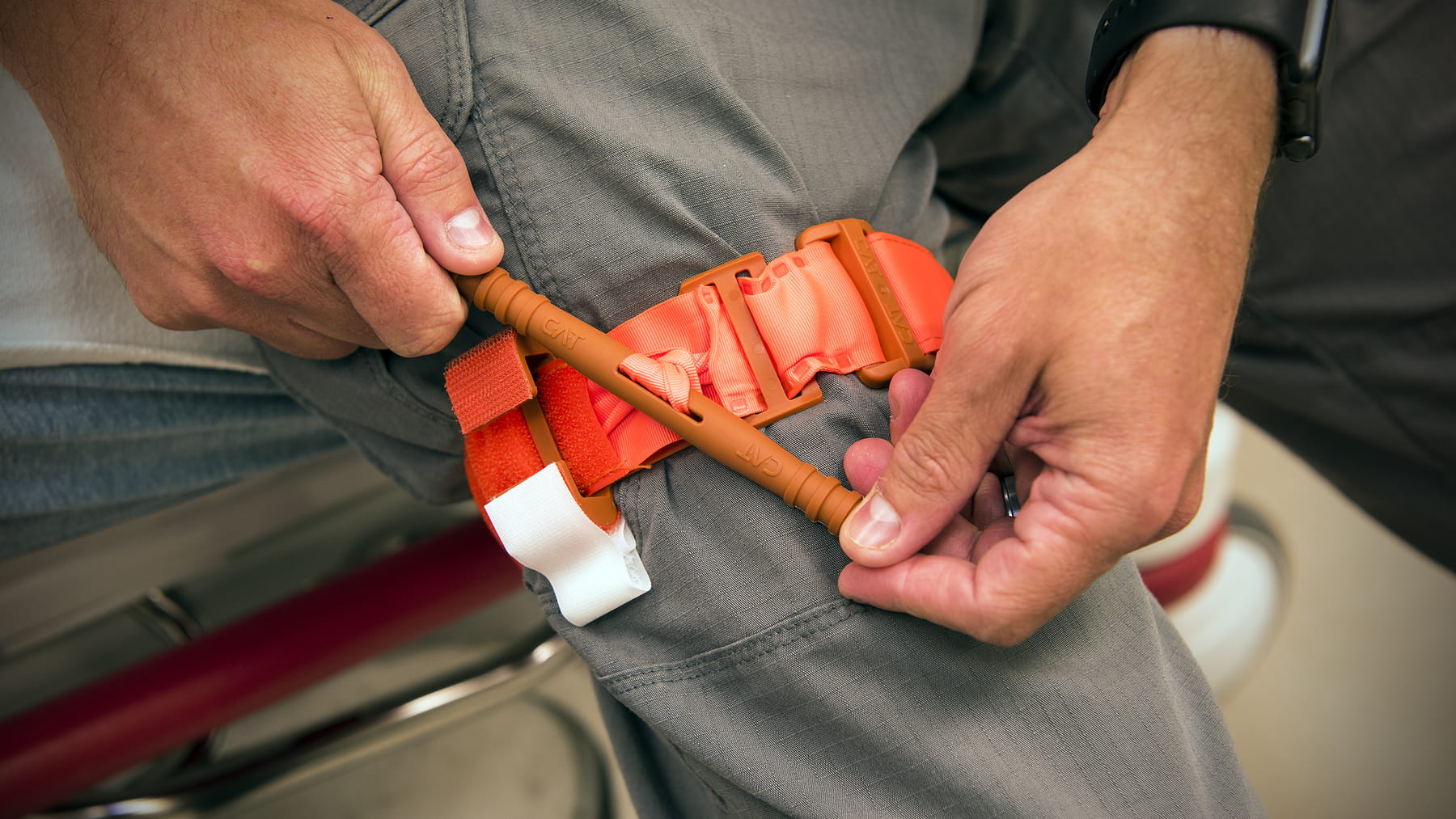Which home emergency devices are worth buying?
 If you’ve ever shopped online to stock your household first-aid kit, you know it's easy to be overwhelmed by the number of emergency medical gadgets now available.
If you’ve ever shopped online to stock your household first-aid kit, you know it's easy to be overwhelmed by the number of emergency medical gadgets now available.
Some products aren’t necessary in a typical home, and some may do more harm than good.
Daniel Bachmann, MD, director of emergency preparedness at The Ohio State University Wexner Medical Center, explains which devices could help – and which should be avoided – in common household medical emergencies.
For broken bones
Inexpensive splints are easy to find, but Bachmann cautions against using them.
“If you’re able to call 911 and just hold still until the EMS comes, you don’t need to splint it yourself,” he says. “You may cause more pain trying to do that.”
For burns
Commercial burn dressings can cool and soothe serious burns, but even a wet towel can help until reaching more definitive medical care.
And don’t forget to have a fire extinguisher in the home, Bachmann says.
“The more important part of burn care is not getting burned.”
For choking
There are several anti-choking devices on the market now. Some feature a face mask and a plunger-like tool that creates suction to dislodge the object blocking an airway.
But knowing how to perform the Heimlich maneuver and calling 911 are much more important than buying anti-choking devices, Bachmann says.
However, if you live by yourself and don’t have a chair or similar object that would allow you to self-administer the Heimlich maneuver, he says, a Heimlich assistance device might be worth buying.
“The potential harm is a false sense of security that the device is going to do more than it can.” –Dr. Daniel Bachmann
For cuts
Most cuts endured at home are minor, possibly requiring bandages and, in some cases, gauze and medical tape. But if there’s a major wound that’s bleeding profusely, Bachmann says, that’s when a tourniquet can help while waiting for trained medical help to arrive.
“If you do some higher-risk activities – say, you live far from a hospital and you sometimes use a chainsaw or you have a hobby, such as woodworking, where you could cut yourself,” Bachmann says, “a tourniquet would be a reasonable thing to get.”
For allergic reactions
For mild reactions to hygiene products, foods or household chemicals, an over-the-counter antihistamine will provide relief – you can consult your pharmacist on the best kind to have on hand.
But if someone in your home has severe allergic reactions to food, chemicals or insects and their doctor recommends epinephrine as a treatment, make sure you have the prescribed epinephrine and auto-injectors ready for emergencies.
To prevent drowning
“If you have a pool, it’s important to have the right rescue devices – a rescue pole, and something that you can throw to someone in the pool,” Bachmann says.
Having a fence around the pool helps prevent small children from falling in and is required by law in some communities.
For insect bites
Ice packs are helpful in relieving the pain of minor insect stings and bites. Over-the-counter, oral antihistamines can help with itching.
For those allergic to certain insects, prescribed epinephrine may be necessary, so talk to your primary care physician about whether it’s needed. For more serious venomous bites, such as those from snakes or scorpions, call 911 – but skip using a venom extractor.
Venom extractors are often marketed as necessary wilderness survival tools, but Bachmann doesn’t recommend them.
“They wouldn’t be harmful, necessarily,” he says, “but there’s no benefit in those.”
For cardiac arrest or stopped breathing
If someone’s breathing or heartbeat has stopped, cardio-pulmonary resuscitation (CPR) could be life-saving. But instead of buying a CPR assistance device and relying on it, Bachmann recommends taking a CPR class or even watching training videos online.
“Just like anything, it doesn’t help you to have a device if you don’t know how to use it,” Bachmann says. “The knowledge is more important.”
For any of these situations, your most valuable emergency device is your phone, he adds.
Smartphones offer apps to walk you through first aid, and being able to call 911 and reach medical professionals is more important than anything.




